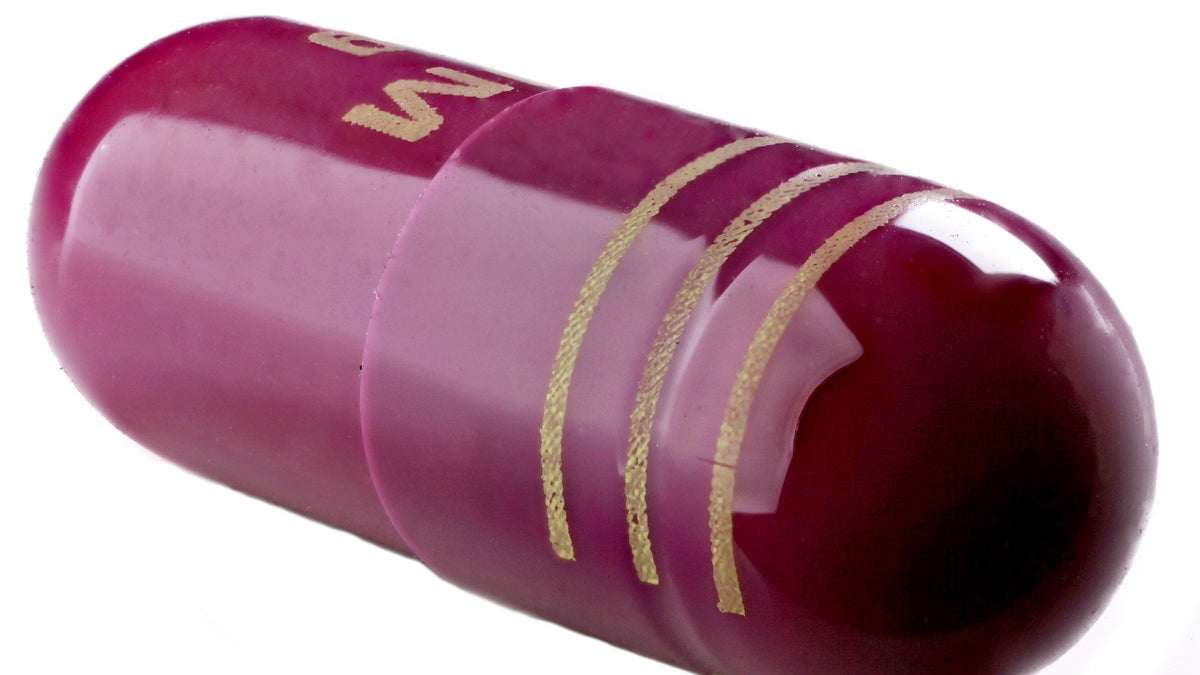FDA approves generic of AstraZeneca drug Nexium
 Photo via ShutterStock) " title="sspurplepillx1200" width="1" height="1"/>
Photo via ShutterStock) " title="sspurplepillx1200" width="1" height="1"/>
(Photo via ShutterStock)
After nearly 15 years on the market, AstraZeneca’s popular “purple pill,” Nexium, will face generic competition.
Teva Pharmaceuticals, an Israeli generics manufacturer with American headquarters in North Wales, Pennsylvania, won FDA approval on Monday to market its lower-cost version of the drug.
A so-called proton pump inhibitor, the medication blocks the production of stomach acid to prevent chronic heartburn, or gastroesophogeal reflux disease, and other related problems. It is available over the counter, and in higher dose by prescription.
The loss of Nexium as a brand-name-only option is not unexpected, said George Chressanthis, a professor of healthcare management and marketing at the Fox School of Business at Temple University.
“While yes, there will be a significant loss of revenue, it’s a revenue that the company I’m sure has anticipated,” he said. Chressanthis is a former employee of the company, but said he has no financial interests.
AstraZeneca, even more than other pharmacutical companies, he added, has struggled with the problem of the “patent cliff,” where multiple products lose patent protection at once — and the higher return that exclusivity affords.
Originally, the Indian manufacturer Ranbaxy was set to make the generic, but its factories did not pass FDA muster. AstraZeneca also made a payment to that company that some alleged was an effort to delay generic prodcution, a claim the company denies. A Massachussets jury decided in December that although there was a large and unjustifiable payment, it did not change the arrival date of the generic drug.
Nexium, or esomeprazole, has long been a flash point for industry critics. The drug is very similar to AstraZeneca’s earlier heartburn blockbuster, Prilosec, or omeprazole. The company maintains the pill is substantially different, but Chressanthis said some have called it a veiled effort to extend patent protection.
Although purchases of Nexium have been slipping in the U.S., those drug sales totaled $468 million in the third quarter of 2014, or about 7 percent of AstraZeneca’s global revenue for that period.
Correction: An earlier version of this article stated that AstraZeneca had paid the generics maker Ranbaxy to delay production. While a payment was made to the company, a jury decided in AstraZeneca’s favor that it did not slow down the appearance of a generic.
WHYY is your source for fact-based, in-depth journalism and information. As a nonprofit organization, we rely on financial support from readers like you. Please give today.

